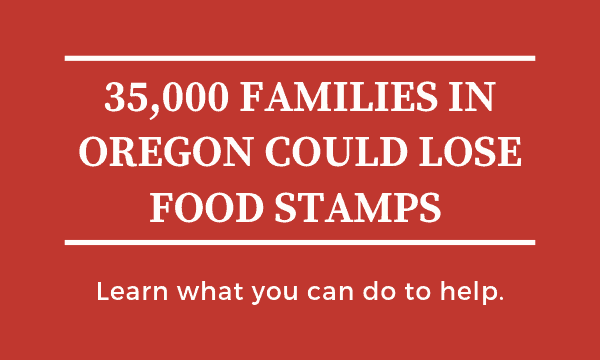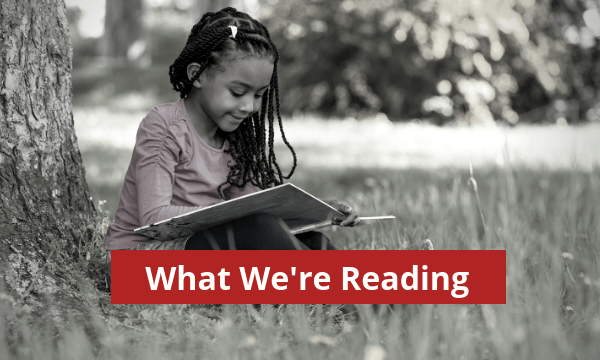
35,000 Families in Oregon Could Lose Food Stamps
You may have heard that the Trump administration is seeking to change how states enroll people in the Supplemental Nutrition Assistance Program (SNAP), commonly referred to as food stamps. Learn more about the impact this will have on people—including children—across the country and here in Oregon, and find out what you can do to help.

The Administration’s Proposed Changes
Currently in more than 40 states, people who already receive Temporary Assistance for Needy Families (TANF) are automatically enrolled in SNAP. The Trump administration wants to change this, limiting automatic enrollment into the program and disqualifying low-income families who have some assets such as a home or money in savings. The change would eliminate SNAP benefits for three million people nationwide.
According to The Washington Post:
“Current rules give states latitude to raise SNAP income eligibility limits so that low-income families with housing and child care costs that consume a sizable share of their income can continue to receive help affording adequate food. This option also allows states to adopt less restrictive asset tests so that families, seniors and people with a disability can have modest savings or own their own home without losing SNAP benefits.”
The Impact on Children
The New York Times reported this week that 500,000 children living in households that receive SNAP benefits would also lose automatic eligibility for free meals at school.
“Children in households with gross incomes between 185 percent and 200 percent of the poverty line would no longer be automatically eligible for any food assistance at school. And children in households with gross incomes between 130 percent and 185 percent of the poverty line would be eligible for only reduced-price meals.”
Not surprisingly, research shows that hunger negatively impacts children’s academic achievement and behavior at school.
What Does It Mean for Families in Oregon?
Oregon’s Department of Human Services estimates 35,000 families in Oregon will lose access to SNAP benefits. According to OPB:
“If the rule is passed, it would immediately push anyone in Oregon earning between 130 percent and 185 percent of the federal poverty level—a range of about $33,500 to $47,600 for a family of four—off the assistance program.”
“This really hits home,” says Erin Helgren, Children’s Institute’s site liaison at our Early Works program in Yoncalla. “Nearly 35 percent of our Preschool Promise children will no longer qualify for SNAP benefits.” The Yoncalla School District is busy completing paperwork to receive a USDA Community Eligibility designation in order to ensure children in the district at least continue to receive free breakfast and lunch at school.
This really hits home. Nearly 35 percent of our Preschool Promise children will no longer qualify for SNAP benefits.
You Can Help Stop These Changes
The Food and Nutrition Service Agency is accepting public comment on proposed changes to SNAP eligibility until September 23. Use the link below to submit your comment urging the government not to change SNAP benefit eligibility. Three million people—500,000 of whom are children—need us to speak up.




